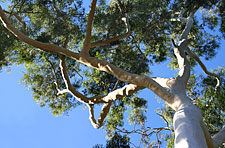 Has the Archbishop's call to Prayer for Connect09 got you thinking as well as praying? His comments about Sydney's "lost tribes' and "geographical spiritual deserts' have got me thinking more carefully about the Georges River Region.
Has the Archbishop's call to Prayer for Connect09 got you thinking as well as praying? His comments about Sydney's "lost tribes' and "geographical spiritual deserts' have got me thinking more carefully about the Georges River Region.
If "lost tribes' or "new tribes' are groups who have settled here and amongst whom there are few known believers and "geographical spiritual deserts' are places in our diocese where there are very few churches and very few Christians, then Georges River has both "tribes' and "deserts'.
Out of the region's total population of 800,000, 38 per cent have a non-English-speaking background. That's over 300,000 people. The Anglicare Research Unit tells us from ABS Census Data, that this figure has increased by 7 per cent from 10 years ago.
So when we try to identify our "lost tribes/new tribes' and "geographical spiritual deserts' we note that people born in Vietnam are the largest group (5.4 per cent of our total population), followed by China (4.5 per cent), Lebanon (3.6 per cent), Greece (1.9 per cent) and Italy (1.7 per cent). The largest growing groups in recent years are those from China, Iraq and India.
The diversity of languages across our region is a pointer to identifying the different cultures ("tribes'). Our largest regional language group is Arabic, followed by Chinese and Greek. Also noteworthy are the largest growing groups over recent years. They are Arabic, Chinese, Vietnamese, Assyrian and Hindi.
When you overlay this data with religious affiliation, then significant "spiritual deserts' begin to appear. Where numbers of the Buddhists and Muslims reside these Christian communities are often small and struggling for viability.
So where does this leave us in identifying our "tribes' and "deserts'?
Firstly, there are concentrations of "tribes' and "deserts' in the Local Government Areas of Bankstown, Canterbury, Fairfield, Liverpool and St George.
Secondly, we need to pray for focused Christian witness to the particular cultures and language groups in these areas.
Thirdly, we should look out for national Christians with whom we can work to strengthen their witness and encourage the formation of various fellowships.
Fourthly, we need to further encourage our own small and fragile beginnings with these "tribes' and in our "deserts'. We need to affirm these green shoots in the concrete and keep praying and thinking.























